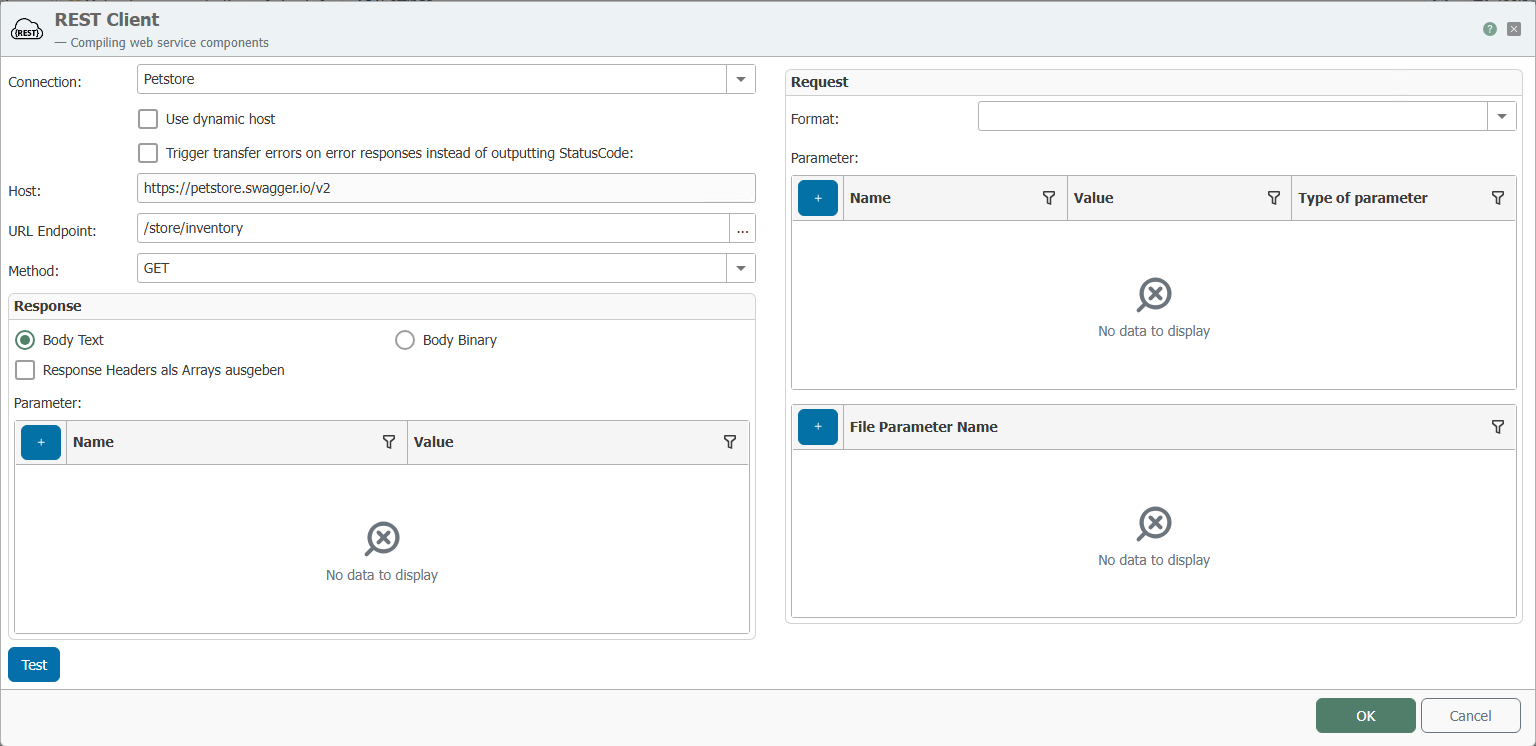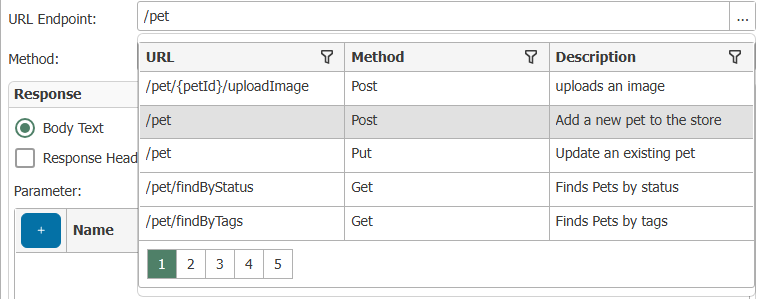REST Client Transfer Object
With the REST client transfer object, REST APIs can be used in connections. How to create a transfer object is described on the page connection_projecting_project.md.

The following properties can be configured for the REST Client Transfer Obeject:
warning
Attention: Please pay attention to upper and lower case when entering the URL. The URLs are case sensitive!
| Set of access data | REST client to be used for this transfer object. |
| Use dynamic host | If this option is active, the host can be passed as a parameter in the connection. This is helpful if requests are to be sent to different hosts. If this option is active, a host address can be entered when using the test function, which can be started with the "Test" Button. |
| Host | The address specified in the selected set of access data will be displayed here. |
| URL endpoint | Address for the endpoint. If an OpenAPI file has been specified for the selected connection, the endpoint can be selected in a dropdown (see graphic). Placeholders can be defined within the URL using curly brackets. For example: /v2/{placeholder1}/user. These placeholders are automatically added as parameters from the type of URL segment in the request parameter area and can then be written to as usual via the OPC Router interface. |
| method | Method to be used for the call. |
| Format | Format to be used for the request. e.g. JSON or XML. |
| Request parameters | The parameters that are sent with the request. |
| Response parameters | The expected response parameters of a response can be specified here. These should correspond to the response parameters of the addressed endpoint. |
| Test | The "Test" button opens a modal in which you can check whether the connection is working correctly. The "Send" button can be used to test the call. If the call works, the expected response (response body) is being displayed and the response parameters are assigned corresponding values. |